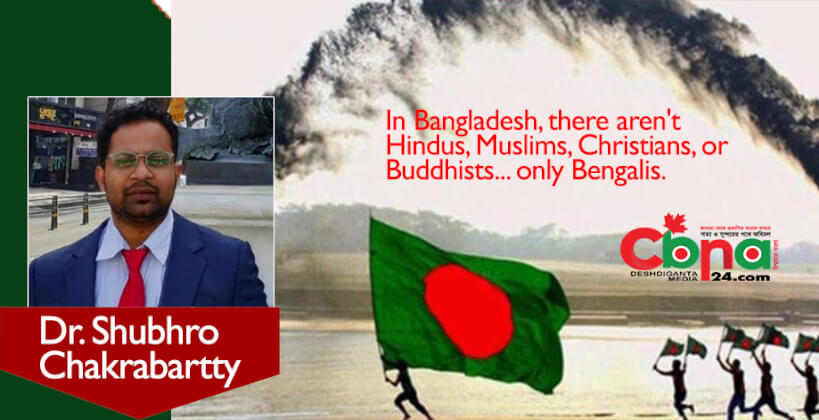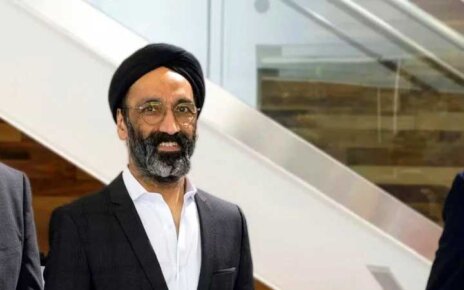In Bangladesh, there aren’t Hindus, Muslims, Christians, or Buddhists… only Bengalis. ।।।। Dr. Shubhro Chakrabartty
Bangladesh is having a rich tapestry with a total population of 174,257,384 Bangladeshi peoples. The struggle for the preservation of Bengali language and culture stands as a testament to the power of unity in the face of oppression. Amidst the turbulence preceding the birth of Bangladesh, Hindus and Muslims in the region united, rallying against the injustices inflicted by Pakistan. The vision of a secular Bangladesh, where people of all backgrounds could coexist harmoniously, was a dream cherished by the father of nation, Sheikh Mujibur Rahman, affectionately known as Bongo Bondhu. Central to this vision was the recognition and celebration of the Bengali language, which faced oppression during the period of Pakistani rule due to the imposition of Urdu as the primary language. The endeavor to safeguard Bengali language and culture witnessed Hindus and Muslims uniting against the injustices inflicted by Pakistan. Together, they fought for the establishment of a separate nation where their linguistic and cultural identity could thrive. This struggle culminated in the historic Language Movement, which ultimately led to the recognition of Bangla as the state language of Bangladesh. The significance of this achievement was further underscored by UNESCO’s declaration of 21st February as International Mother Language Day. Despite the partition that followed, offering Hindus the option to migrate to India and Muslims to Pakistan, the majority chose to remain in Bangladesh. This choice reflected a deeper sentiment – a sense of belonging not to a religious community but to the motherland itself. Poet Abdul Hakim beautifully quoted this sentiment, emphasizing that the essence of being Bangladeshi transcends religious labels. In his words,
Whoever hates the verses of the Bangla being born in the soil of the land?
It is unknown to determine the essence of their birth.
He, who is not satisfied with his own language and learning.
— Translated by Jahangir S. Dickens
Indeed, Bangladesh is a testament to the power of cultural identity and the resilience of its people. Regardless of religious affiliation, every Bangladeshi shares a common bond rooted in the love for their language and heritage. The sacrifices made during the Language Movement, often at the cost of precious lives, serve as a reminder of the collective struggle for freedom and dignity. The struggle for the preservation of Bengali language and culture stands as a poignant reminder of the power of collective action in the face of adversity. Hindus and Muslims, united by their love for their mother tongue, defied division, and repression to carve out a space where their identity could thrive. Their legacy continues to inspire future generations to safeguard and celebrate the rich tapestry of languages and cultures that define our world. I believe that regardless of religious affiliation—be it Hindu, Muslim, Christian, or Buddhist—every Bengali in Bangladesh can come together to elevate the nation in every sphere, realizing the vision of Bongo Bondhu in evident ways.
Dr. Shubhro Chakrabartty, Researcher and Scientist, India
এসএস/সিএ




